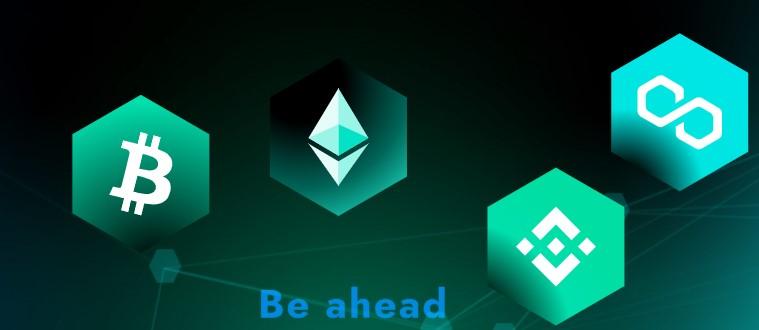Exploring the Mempool: A Deep Dive into ETH, BSC (Binance Smart Chain), and BTC

Estimate ETH Gas prices, with our AI-Powered Eth Gas Tracker. Available for ETH & BSC with API & SDK for Web3 developers.
In the ever-evolving landscape of blockchain technology and cryptocurrencies, understanding the inner workings of the digital world has become increasingly important. One crucial aspect that often remains hidden from the average user's view is the "mempool." In this comprehensive guide, we will explore the mempool in the context of three of the most prominent cryptocurrencies: Ethereum (ETH), Binance Smart Chain (BSC), and Bitcoin (BTC). Our aim is not only to shed light on the mempool but also to help you gain a deeper understanding of how it influences the transaction processes within these blockchain networks.
What is the Mempool?
Before delving into the specifics of each blockchain, let's start with a fundamental question: What exactly is the mempool? The mempool, short for "memory pool," is a crucial component of blockchain technology. It serves as a temporary storage area for unconfirmed transactions. When a user initiates a transaction, whether it's sending cryptocurrencies or executing a smart contract, the transaction is first sent to the mempool.
The Mempool's Role in Transaction Processing
The mempool acts as a waiting room where pending transactions sit until they are picked up by miners for inclusion in the next block. Miners prioritize transactions based on various factors, including transaction fees, to maximize their profits. This is where the concept of "gas fees" comes into play, particularly in the Ethereum network.
Ethereum (ETH) Mempool
Ethereum, often referred to as the "world computer," has one of the most active and congested mempools in the blockchain space. Here's what you need to know about Ethereum's mempool:
Gas Fees and Transaction Speed
In Ethereum, users compete to have their transactions processed quickly by offering higher gas fees. Gas fees are payments made to miners for validating and executing transactions. During times of high network activity, gas fees can skyrocket, leading to increased transaction costs. Therefore, it's essential to monitor the mempool and time your transactions wisely.
Pending Transactions
Ethereum's mempool can become congested during periods of high demand. This can result in longer confirmation times for transactions. To check the status of your transaction in the mempool, you can use blockchain explorers or wallet apps to track its progress.
Binance Smart Chain (BSC) Mempool
Binance Smart Chain, a blockchain developed by Binance, has gained popularity for its high-speed and low-cost transactions. Let's take a closer look at how the BSC mempool operates:
Fast and Affordable Transactions
One of the primary advantages of BSC is its ability to process transactions quickly and at a fraction of the cost compared to Ethereum. This is made possible by having a more centralized network structure, which results in lower transaction fees.
Mempool Characteristics
BSC's mempool shares similarities with Ethereum but operates with different parameters. Transactions on BSC typically have shorter confirmation times and lower fees, making it an attractive choice for users looking for efficiency and cost-effectiveness.
Bitcoin (BTC) Mempool
Bitcoin, the pioneer of cryptocurrencies, also has its own mempool. Although Bitcoin's mempool may not be as congested as Ethereum's, it plays a critical role in the network's operation:
Transaction Confirmation
Bitcoin transactions require confirmations from miners to be considered final. These confirmations are obtained when a transaction is included in a block. The mempool holds pending Bitcoin transactions until miners select them for inclusion in the blockchain.
Fee Optimization
Like Ethereum, Bitcoin users can optimize their transactions by adjusting the transaction fees they are willing to pay. This can influence the speed at which a Bitcoin transaction gets processed.
Conclusion
In this comprehensive exploration of the mempool in Ethereum, Binance Smart Chain, and Bitcoin, we've uncovered the vital role it plays in the transaction processing of these blockchain networks. Understanding how the mempool operates, including factors like gas fees and transaction speed, is essential for anyone involved in cryptocurrency.
As you navigate the world of cryptocurrencies, remember that staying informed about the mempool's dynamics can help you make more informed decisions about your transactions. Whether you're a trader, investor, or enthusiast, a deep understanding of the mempool will undoubtedly enhance your experience in the crypto space.
- Art
- Causes
- Crafts
- Dance
- Drinks
- Film
- Fitness
- Food
- Juegos
- Gardening
- Health
- Home
- Literature
- Music
- Networking
- Other
- Party
- Religion
- Shopping
- Sports
- Theater
- Wellness
- IT, Cloud, Software and Technology


